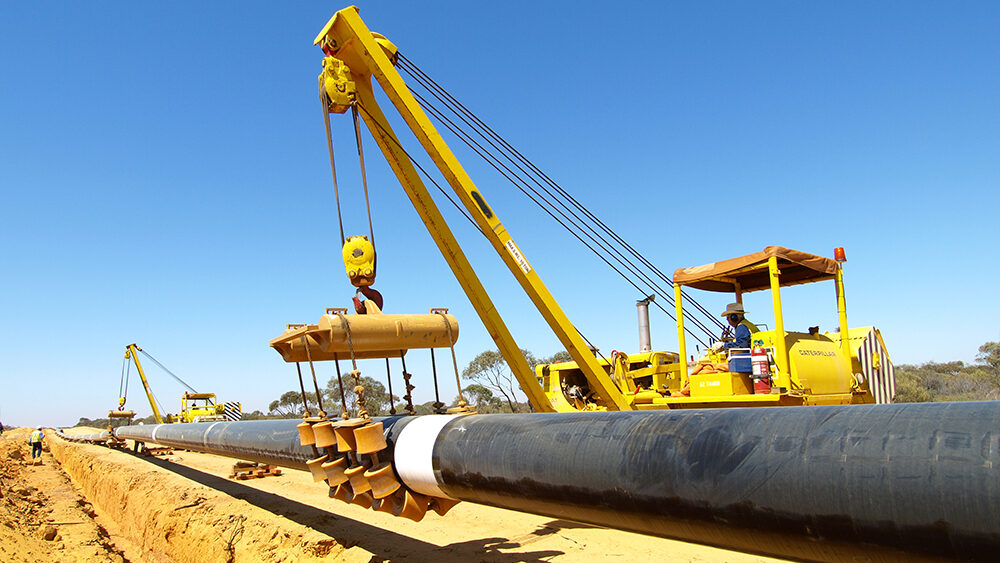Saudi Arabia Signs Landmark Agreement for Jubail-Buraydah Water Transmission Pipeline
In a significant advancement for Saudi Arabia’s water infrastructure, the Saudi Water Partnership Company (SWPC) has formalized agreements for the Jubail-Buraydah Independent Water Transmission Pipeline (IWTP) project. The signing ceremony, held under the patronage of His Royal Highness Prince Dr. Faisal bin Mishaal bin Saud bin Abdulaziz, Governor of Al-Qassim Province, was attended by His Excellency Eng. Abdulrahman Abdulmohsen AlFadley, Minister of Environment, Water, and Agriculture, who also serves as the Chairman of SWPC. The agreements were signed with a consortium comprising Aljomaih Energy & Water Company, Nesma Company Ltd., and Buhur for Investment Company.
Project Overview and Strategic Importance
The Jubail-Buraydah IWTP is poised to enhance the water infrastructure in both the Al-Qassim and Eastern Provinces. With a transmission capacity of 650,000 cubic meters per day, the pipeline will extend over 587 kilometers. The project entails a total investment of approximately 8.5 billion Saudi Riyals (USD 2.26 billion). A notable feature of this pipeline is its reverse flow capability, allowing water to be transported from Al-Shamasiyah through Al-Qulayib to Al-Jubail at full capacity. This design aligns with the Ministry of Environment, Water, and Agriculture’s broader strategy to enhance regional water connectivity across the Kingdom, ensuring a stable and sustainable supply of drinking water.
This initiative is crucial as Saudi Arabia continues to combat water scarcity challenges exacerbated by a rapidly growing population and increasing urbanization. The project represents a major step in ensuring the availability of fresh water in strategic locations, improving water security, and enhancing the resilience of the country’s water supply system.
Infrastructure Enhancements
To bolster the reliability and efficiency of the water supply, the project includes the construction of nine strategic storage tanks—six located in Al-Shamasiyah and three in Al-Jubail. These tanks will collectively offer a storage capacity of 1,634,500 cubic meters, providing a buffer to meet demand fluctuations and emergencies.
Furthermore, the project incorporates state-of-the-art monitoring and control technologies to enhance operational efficiency. By integrating smart systems and automation, the pipeline will optimize water distribution, minimize waste, and reduce energy consumption. These features align with Saudi Arabia’s broader sustainability goals and the Vision 2030 objectives.
Private Sector Collaboration and Vision 2030
Minister Al-Fadley underscored the pivotal role of private sector participation in the Kingdom’s water sector development. He expressed gratitude to Prince Dr. Faisal bin Mishaal bin Saud bin Abdulaziz for his unwavering support of regional development initiatives. Al-Fadley highlighted that engaging private entities in construction, operation, and management not only enhances service quality but also optimizes expenditure efficiency. Such collaborations are in harmony with the objectives of Saudi Arabia’s Vision 2030, which aims to diversify the economy and promote sustainable development.
Under Vision 2030, Saudi Arabia is actively pursuing public-private partnerships (PPPs) to drive infrastructure projects. The IWTP project is a prime example of how private investment and expertise can contribute to national development while ensuring sustainable and cost-effective service delivery.
Competitive Bidding and Project Execution
Eng. Khalid Bin Zwaid AlQureshi, CEO of SWPC, detailed the competitive bidding process that led to the project’s awarding. Out of 32 participating companies, including 14 local firms, the consortium of Aljomaih Energy & Water Company, Nesma Company Ltd., and Buhur for Investment Company emerged as the preferred bidder.
The project will be executed under a Build, Own, Operate, and Transfer (BOOT) model, which means the private sector will finance, construct, and operate the pipeline for a fixed period before transferring ownership to the government. Commercial operations are expected to commence in the second quarter of 2029, with a concession period set for 35 years from the start of operations.
This long-term engagement model ensures that the private sector remains accountable for the project’s performance and efficiency, while also enabling knowledge transfer and capacity building for local expertise.
Economic and Environmental Impact
Al-Qureshi emphasized that the project is designed to improve water transmission efficiency while reducing electricity consumption and operational costs. Additionally, it is expected to bolster local economic growth by increasing Saudization levels in both business operations and human resources.
The project will generate significant employment opportunities for Saudi nationals, particularly in engineering, construction, and water management sectors. By prioritizing local talent and expertise, the initiative aligns with national job creation and workforce development objectives.
From an environmental perspective, the IWTP project incorporates eco-friendly technologies aimed at minimizing water loss and optimizing resource usage. Advanced pipeline materials and leakage detection systems will be implemented to ensure the efficient transfer of water with minimal environmental impact.
Furthermore, by reducing dependence on groundwater extraction and promoting the use of desalinated water for distribution, the project supports Saudi Arabia’s long-term sustainability efforts in water conservation and resource management.
Conclusion
The signing of the Jubail-Buraydah IWTP agreements marks a significant milestone in Saudi Arabia’s ongoing efforts to enhance its water infrastructure. The project stands as a testament to the Kingdom’s commitment to sustainable development, economic diversification, and long-term water security.
By leveraging private sector expertise and aligning with the goals of Vision 2030, the Kingdom is taking substantial steps toward ensuring a sustainable and efficient water supply for its regions. With improved infrastructure, strategic storage solutions, and advanced monitoring systems, Saudi Arabia is strengthening its ability to meet growing water demands while ensuring a resilient and sustainable future for its citizens.
Do follow gulf magazine on Instagram
for more information click here


